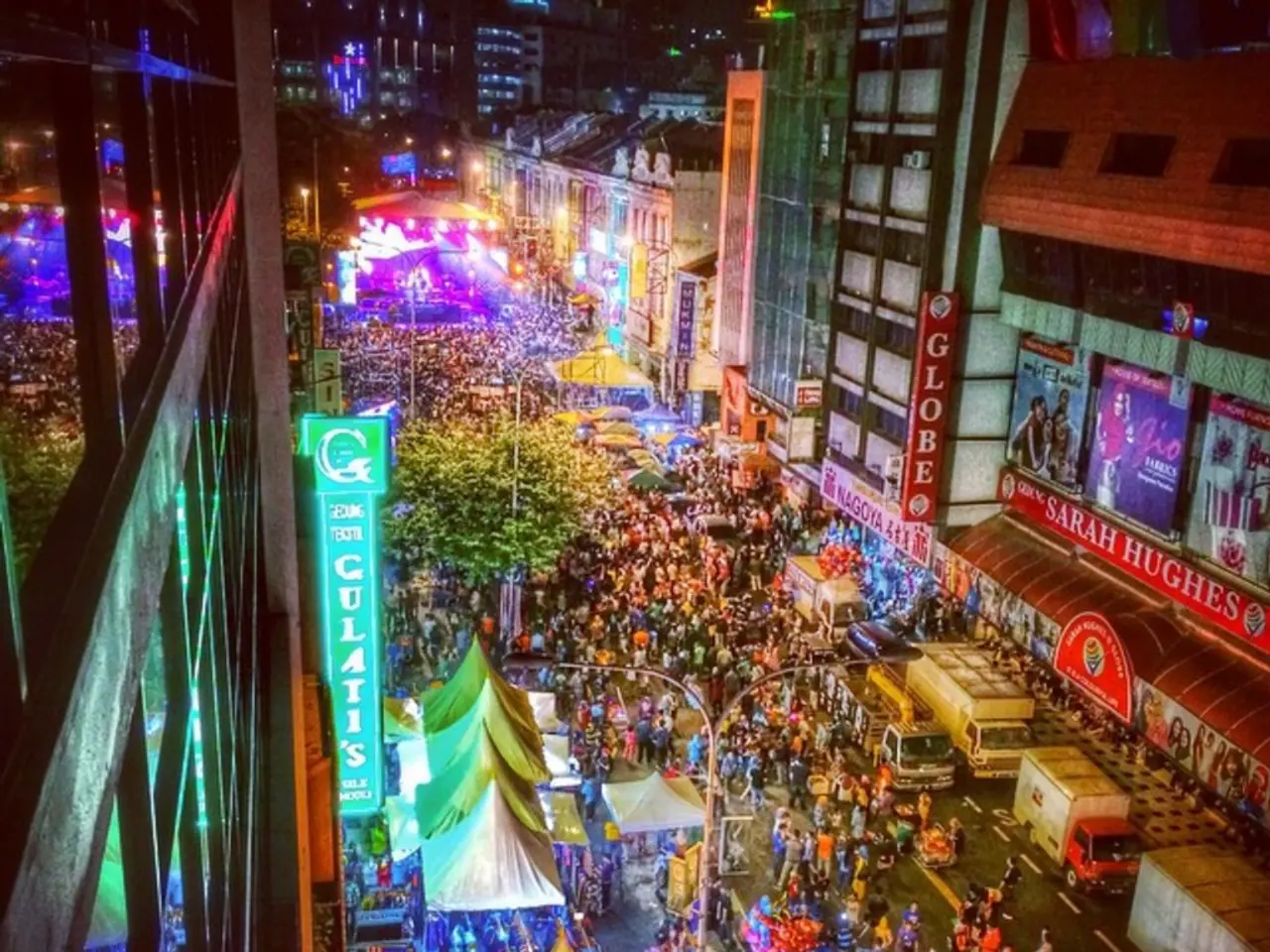UK film scene undergoing transformative shifts through festival programming patterns
The landscape of UK film festivals is undergoing a significant transformation, with a dynamic trend towards blending traditional film formats with evolving digital storytelling methods. This shift is reshaping the industry, expanding storytelling formats and broadening audience reach.
Key UK film festivals, such as the Encounters Short Film and Animation Festival, are leading this change by reincorporating short films alongside digital and interactive media like virtual reality and immersive experiences. This convergence, influenced by advances in digital platforms and user experience design, places narrative pacing, visual coherence, and interactivity at the forefront [1].
Encounters, after a funding hiatus, has returned with a focus on bridging gaps between short film and digital expression, indicating a trend towards innovation and experimentation in storytelling modes [1]. The festival is also emphasizing professional and educational programming to foster industry development.
Inclusivity and diversity are key programming pillars at numerous UK festivals. Initiatives like Inclusion & Diversity Screening Days organized by the Independent Cinema Office (ICO) highlight the importance of representing marginalized communities and addressing social issues through film, thereby reshaping festival cultures to be more inclusive and supportive of trans and other underrepresented groups [3].
UK film festivals are also part of a global movement to spotlight emerging talent. A significant proportion of programmers select works by first-time filmmakers and debut projects, ensuring the industry remains vibrant and forward-looking. This mirrors trends seen internationally, such as at Sundance, where new voices are encouraged [2].
Together, these programming trends reflect a film festival landscape that is more experimental, audience-focused, and socially conscious, signalling an ongoing transformation of UK cinema culture within the global industry context [1][3][2].
This transformation is evident in various aspects of UK film festivals. For instance, climate crisis programming exemplifies this trend, with festivals like Take One Action Film Festival building entire programming strategies around environmental justice and sustainability.
Interactive and immersive programming innovations are also transforming UK film festivals, with traditional cinema screenings being complemented by immersive experiences that blur the boundaries between film, performance, and audience engagement.
For production professionals, valuable content on emerging funding models reshaping independent filmmaking in Britain is available. Resources provide actionable intelligence on post-Brexit co-production treaties, evolving UK tax incentives for different budget levels, and successful indie productions that have pioneered innovative financing structures.
Data-driven curation has emerged as a significant revolution in festival programming strategy, with leading UK festivals employing sophisticated audience analytics to inform programming decisions. Evidence-based analysis of how diversity initiatives impact festival sustainability, including audience development outcomes, sponsor attraction rates, and press coverage differences between traditional and diversity-focused programming approaches, is also available.
The economic impact of these regional festivals extends far beyond screen culture, with research showing that for every £1 invested in regional film festivals, approximately £5.50 returns to the local economy. Insights into how festivals in Manchester, Glasgow, and Cardiff have developed programming strategies that celebrate local storytelling traditions while attracting international attention are also provided.
As the UK film festival landscape evolves at unprecedented speed, timely intelligence on these developments before they appear in mainstream industry coverage is delivered to our exclusive subscriber community. This community extends beyond valuable content to include exclusive virtual roundtables where festival professionals discuss emerging challenges in a confidential, collaborative environment.
However, this transformation comes with challenges. Festival directors now perform a delicate balancing act between artistic merit and financial sustainability, requiring knowledge of audience development, sponsorship dynamics, and digital engagement strategies. Participatory programming formats have proven effective at attracting younger audiences, but they introduce new challenges around accessibility and inclusion.
The UK film festival landscape is at a critical crossroads, with challenges such as shifting audience demographics, financial sustainability concerns, and competition from streaming platforms. Virtual and augmented reality have moved from experimental sidebars to central components of many UK festival programs, providing opportunities for innovation but also raising questions about accessibility and affordability.
Despite these challenges, the future of UK film festivals looks promising, with regional film festivals establishing themselves as vital cultural platforms with distinct identities, leveraging their regional identity to offer something authentically different to filmmakers and audiences. Identity-based programming strands focusing on gender, sexuality, disability, and racial representation have evolved from their origins as diversity initiatives to become some of the most critically acclaimed and financially successful components of major UK festivals.
In conclusion, the UK film festival landscape is undergoing a significant transformation, reshaping the industry by expanding storytelling to incorporate immersive, interactive, and digital formats alongside traditional film screenings. This transformation is enhancing professional and educational programming to foster industry development, prioritizing inclusion and diversity, and supporting emerging filmmakers and debut works to energize cinematic innovation. Together, these programming trends reflect a film festival landscape that is more experimental, audience-focused, and socially conscious, signalling an ongoing transformation of UK cinema culture within the global industry context.
- The focus on blending traditional film formats with evolving digital storytelling methods in UK film festivals makes the landscape an interesting subject for regular updates in the film industry news sphere, contributing to the broader entertainment discourse.
- The transformation of UK film festivals, characterized by the inclusion of immersive, interactive, and digital formats, has also drawn attention to the entertainment sector, attracting a diverse range of audiences and fostering a more socially conscious and inclusive environment within the industry.








